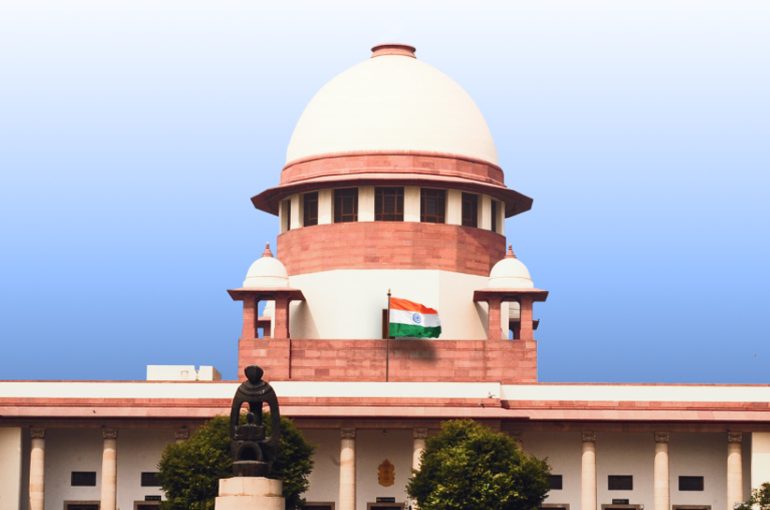HIGH COURTS MUST KEEP THEIR HANDS AWAY WHEN SUPREME COURT IS SEIZED OF A MATTER’: SUPREME COURT PULLS UP UTTARAKHAND HIGH COURT

Introduction
Environmental protection and constitutional governance intersect significantly when judicial proceedings encounter administrative delays and procedural complications. The Supreme Court of India, in the matter titled ‘In Re: T.N. Godavarman Thirumulpad v. Union Of India & Ors (Writ Petition (Civil) No. 202/1995)’, concerning illegal constructions and deforestation within the Corbett Tiger Reserve, was compelled to address an extraordinary situation wherein a subordinate judicial authority i.e. a High Court, initiated parallel proceedings that undermined the Apex Court’s ongoing adjudication. The Two Judge Bench comprising of the Chief Justice and Justice K. Vinod Chandran, emphasized Court’s commitment to maintaining judicial supremacy and ensuring that constitutional mandates for environmental conservation remain uncompromised by bureaucratic interference or collateral litigation strategies.
Factual Background
The Supreme Court was seized of suo moto proceedings initiated under Article 32 of the Constitution pertaining to systematic ecological degradation within the Corbett Tiger Reserve. The case involved allegations of unauthorized construction activities that posed threats to the protected wildlife sanctuary’s ecological integrity. To investigate these serious environmental violations, the Uttrakhand High Court had initially directed intervention by the Central Bureau of Investigation, which subsequently registered a formal case and commenced its investigation. The Apex Court assumed jurisdiction over this matter and established a systematic monitoring mechanism, regularly receiving investigative progress reports from the CBI and simultaneously overseeing departmental disciplinary proceedings initiated against responsible officials.
During the hearing conducted on 08.09.2025, the Court raised significant concerns regarding differential treatment extended to one government officer who had not received prosecution sanction, whereas other implicated officials had obtained the necessary authorization. The Court’s observations prompted immediate governmental action. Within days, specifically on 16.09.2025, the concerned State Government granted sanction for prosecution against the previously exempted officer under the provisions of Criminal Law. Simultaneously, the State Government forwarded documents to the Union of India requesting sanction under Section 19 of the Prevention of Corruption Act, 1988.
However, a critical development occurred when the officer in question filed a Petition before the Uttrakhand High Court challenging the validity of the prosecution sanction order dated 16.09.2025. The learned Single Judge of the High Court, vide order dated 14.10.2025, admitted the petition and granted a stay on the operation and effect of the sanction order. This collateral litigation threatened the integrity of the Supreme Court’s proceedings and raised questions about jurisdictional boundaries between different courts.
Court’s Decision and Reasoning
The Court’s reasoning proceeded on multiple constitutional and institutional planes.
First, the Court articulated a fundamental principle regarding the monitoring of Supreme Court proceedings: a party continuously following proceedings before the Apex Court and possessing knowledge of its observations and orders is expected to intervene directly in those proceedings if aggrieved, rather than seeking collateral relief from subordinate courts. The Judgment emphasized that approaching a High Court to challenge an order virtually constitutes interference in Supreme Court proceedings, particularly when the challenged order was granted during the pendency of the matter before the Apex Court.
Second, while acknowledging the constitutional status and independence of High Courts, the Supreme Court established a doctrine of institutional comity. The Court noted that judicial matters require a specific hierarchical structure where, once the Supreme Court hears a matter, High Courts are expected to refrain from entertaining collateral proceedings that could undermine the Supreme Court’s authority or interrupt its proceedings.
Third, the Court criticized the High Court’s approach for failing to even reference the Supreme Court proceedings in its Order, despite the fact that the Petitioner’s pleadings allegedly contained details of the Apex Court’s case. This omission was interpreted as indicative of inadequate institutional coordination.
In terms of operative directions, the Court issued several key orders: First, it directed that the proceedings in Writ Petition Criminal No.1220 of 2025 pending before the Uttrakhand High Court be immediately withdrawn and transferred to the Supreme Court for hearing alongside the primary environmental matter. Second, it stayed the operation and effect of the High Court’s order dated 14.10.2025 that had granted stay to the sanction order. Third, recognizing the gravity of the officer’s conduct in circumventing the Supreme Court’s authority, the Court issued a notice to Shri Rahul requiring him to appear before the Court on 11.11.2025 and explain why contempt proceedings should not be initiated against him for his actions.
Conclusion
This Judgment reiterates the boundaries of judicial structure within India’s constitutional framework. The Supreme Court reaffirmed that once the Apex Court initiates proceedings, particularly on matters of constitutional significance involving public interest and environmental protection, subordinate courts cannot entertain collateral proceedings that have the practical effect of interfering with the Supreme Court’s authority. The decision establishes that parties continuously monitoring Supreme Court proceedings cannot strategically engage with lower courts to obtain interim reliefs that contradict the Apex Court’s proceedings.
YASH HARI DIXIT
Legal Associate
The Indian Lawyer & Allied Services
Please log onto our YouTube channel, The Indian Lawyer Legal Tips, to learn about various aspects of the law. Our latest Video titled “Tips for Legal Practice in India | Build a Successful Law Career 2025 | Advocate Sushila Ram Varma” can be viewed at the Link below:
https://youtu.be/DHnNWeptB5k





































Leave a Reply